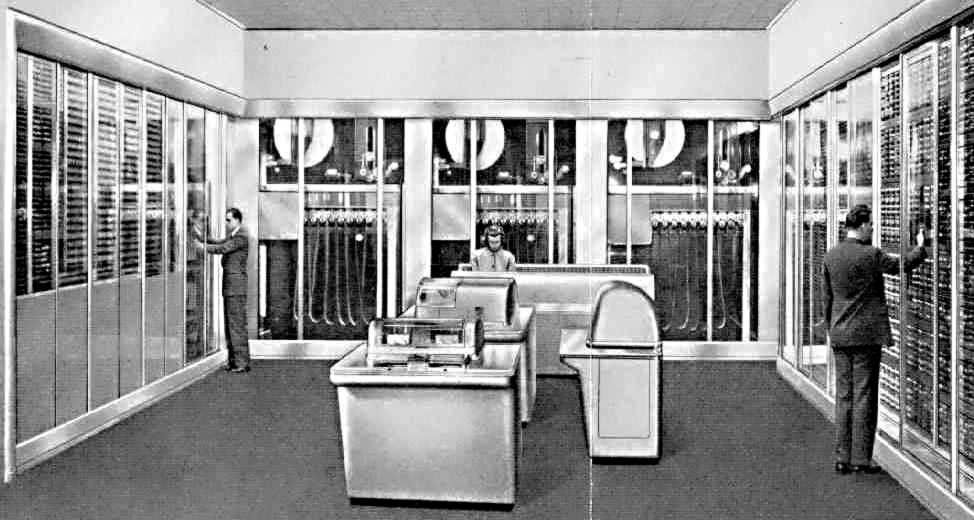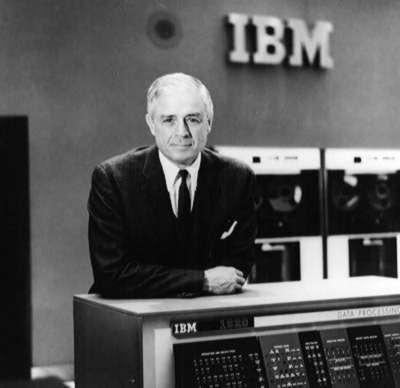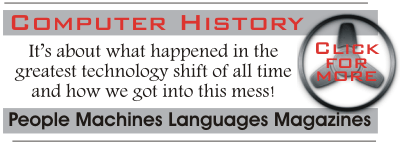| IBM Reaches Its 100th Anniversary |
| Written by Historian | |||
| Thursday, 16 June 2011 | |||
|
IBM reaches its hundredth birthday today, June 16, 2011. But surely commercial computers are nowhere near 100 years old? True, but International Business Machines started out as a manufacturer of tabulating machines and time recorders. A hundred years is a long time for any company to have been in business and IBM started out in a very different world from today's. The centenary marks the date when Hollerith’s Tabulating Machine Company merged with the Computing Scale Company of America and the International Recording Company to become the Computing-Tabulating-Recording Company, which produced punch card sorting and tabulating machines together with assorted scales and clocks. When Thomas J Watson Senior took over its management in 1914 it was deep in debt and close to going out of business. However his skills as a salesman learned at the National Cash Register Company (NCR) quickly turned things around and by 1920 CTR's gross income was $14 million. In 1924, when Watson was 50, he became its chief executive officer and changed the name of CTR to International Business Machines - IBM.
Thomas J Watson Sr (1874-1956)
IBM's first involvement with computers was 5 million dollars to Howard Aiken's Mark I project - but when the machine was complete in 1944 Aiken pointedly didn't acknowledge IBM's contribution to the achievement. Given that the money had been a gift this seems unreasonable behaviour on the part of Aiken and Watson was furious. But he was also motivated to compete and Two years later IBM had produced the SSEC - Selective Sequence Electronic Calculator.
The SSEC Selective Sequence Electronic Calculator
The SSEC had 12,500 valves, 21,400 relays and was way ahead of anything else. It could store eight 20-bit numbers in electronic memory, 150 numbers on the relays and 20,000 numbers on sixty reels of punched tape. It was more powerful than ENIAC - the first true electronic computer which was completed a year earlier. and was the first publicly available computing machine and it was used for many years to do work ranging from the design of turbine blades to oil field exploration. However it was not really a computer instead the first IBM computer was the 701 in 1952. Thomas Watson Senior was famously known for doubting the need for more than a handful of computers. However his son, Thomas J Watson Junior, had a different vision. The father and son relationship was a stormy one but in 1955 his father handed over the reins and shortly after that the ambitious System 360 was launched.
Thomas J. Watson Junior (1914-1993) Under his leadership Big Blue, as IBM was known due to its choice of company colors, was a force to be reckoned with in early commercial computing. In its heyday, when mainframes arrived on a fleet of trucks, there was a well known saying: "nobody ever got fired for buying IBM." Nowadays IBM hardly manufactures any hardware. Instead the company has moved on to supplying software and services and while it is still one of the most important and influential companies in IT it doesn't have the high profile it has in the days of the IBM PC and then of the Thinkpad.
The Watson name is still remembered at IBM and was given to the AI machine that came to prominence last year by competing in, and winning, Jeopardy!.
To mark its centenary IBM is encouraging up to 400,000 employees worldwide to skip their usual office work in order to donate time to charitable causes and schools. Further readingWatson wins Jeopardy! - trick or triumph
To be informed about new articles on I Programmer, sign up for our weekly newsletter, subscribe to the RSS feed and follow us on Facebook or Linkedin.
|
|||
| Last Updated ( Thursday, 15 February 2024 ) |




